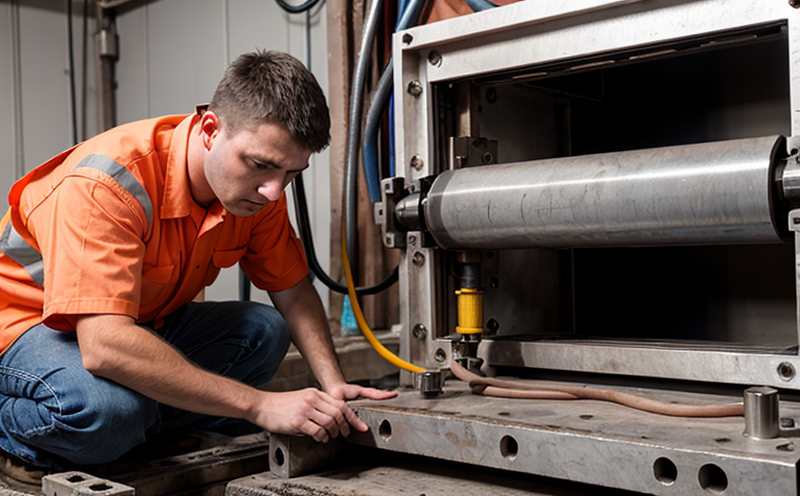ASTM D638 Tensile Mechanical Testing of Luminaire Materials
The ASTM D638 standard provides a methodology to determine the tensile properties of luminaire materials, which is critical for ensuring product durability and performance. This service at Eurolab ensures compliance with international standards while providing detailed data that informs design decisions.
Our testing covers various types of luminaire parts including plastic casings, reflectors, diffusers, and other components made from thermoplastics or thermosets. By applying controlled forces in a tensile test, we can accurately measure the material’s ultimate tensile strength (UTS), yield strength, elongation at break, and modulus of elasticity.
The precision and accuracy of these measurements are paramount for manufacturers aiming to meet regulatory requirements and improve product reliability. In this context, ASTM D638 offers a standardized approach that is universally accepted by industries worldwide. It allows us to compare test results across different materials and manufacturers, ensuring consistency in quality.
To prepare specimens for testing, we follow strict procedures outlined in the standard. Specimens are cut from luminaire components using precise cutting tools and carefully trimmed to meet specified dimensions. This step ensures that all samples undergo consistent mechanical properties measurement conditions.
For accurate results, our laboratory uses advanced tensile testers equipped with high-resolution force transducers capable of measuring forces down to micro-Newton levels. These instruments can apply loading rates from slow creep modes suitable for brittle materials up to rapid cycling tests typical for flexible plastics.
The testing process involves mounting the specimen between two clamps on opposing grips within the machine. A constant rate of extension is maintained until failure occurs, at which point peak load and elongation values are recorded. Data collected during this procedure includes not only final breaking strength but also intermediate stages that reveal how the material behaves under stress.
Our laboratory adheres strictly to ASTM D638 specifications when conducting tensile tests on luminaire materials. This ensures consistency with industry norms and facilitates comparability across various manufacturers and regions. Compliance with this standard is essential for ensuring consistent performance of luminaires in diverse environments.
In addition to mechanical testing, our services encompass a wide range of other compliance assessments related to lighting products. These include electrical safety evaluations, thermal management analyses, and optical performance tests among others.
- Compliance with international standards such as IEC 60598 for general-purpose luminaires.
- Evaluation of heat dissipation characteristics ensuring safe operation under typical usage conditions.
- Assessment of light output and color rendering indices to meet specified performance targets.
The combination of these tests provides comprehensive insights into the overall quality and reliability of lighting fixtures, helping manufacturers optimize their designs for both efficiency and safety.
Eurolab Advantages
At Eurolab, we pride ourselves on providing top-tier testing services tailored specifically to the needs of our clients in the lighting industry. Our expertise lies not only in executing ASTM D638 tests but also in leveraging them within broader quality assurance frameworks.
We offer rapid turnaround times without compromising on accuracy or precision, allowing you to quickly identify any potential issues early in your product development cycle. This agility enables continuous improvement and faster market entry for new products.
Our team of experienced professionals ensures that all tests are conducted according to international best practices, thereby enhancing the credibility of your results both domestically and internationally. By aligning ourselves with global standards like ASTM D638, we help ensure that your luminaire meets stringent safety and performance criteria.
In addition to our technical capabilities, Eurolab is committed to maintaining a safe working environment for all personnel involved in testing operations. We invest heavily in state-of-the-art facilities equipped with the latest technology, ensuring reliable and repeatable outcomes every time.
Quality and Reliability Assurance
The ASTM D638 tensile mechanical testing of luminaire materials plays a pivotal role in maintaining consistent product quality across all stages of production. It helps manufacturers identify weak points early on, allowing them to address these issues before they become costly problems down the line.
By incorporating this test into their R&D processes, companies can innovate more effectively knowing that each new iteration meets rigorous performance benchmarks established by leading industry organizations. Furthermore, compliance with ASTM standards adds value for consumers who trust products labeled as meeting recognized international norms.
The results from these tests contribute significantly to the overall reliability of lighting systems, which is especially important given their widespread use in public spaces and homes alike. Ensuring that each luminaire can withstand various environmental factors enhances user satisfaction while reducing maintenance costs over time.
Environmental and Sustainability Contributions
- By identifying materials with superior tensile properties early in the design process, manufacturers reduce waste by minimizing scrap rates during production runs.
- The accurate measurement of material performance helps optimize component dimensions, leading to more efficient use of resources throughout manufacturing processes.
- Tensile tests also play a crucial role in assessing recyclability potential, which is becoming increasingly important as society moves towards greater sustainability goals. Understanding how materials behave under stress can guide manufacturers toward selecting those that degrade less harshly during end-of-life recycling operations.





